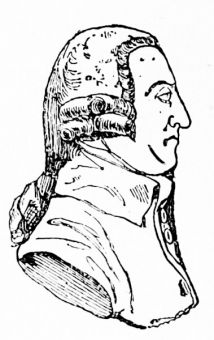
One more event must be recorded which forms a landmark in economic history, the publication in 1776 of Adam Smith's Enquiry into the Nature and Causes of the Wealth of Nations. For nearly three centuries the doctrines collectively described as the Mercantile Theory had been generally accepted.
With national power as the state's grand object, it had been assumed to be the business of the state to control commerce and industry, and to direct them along the channels most conducive to national power; wealth or material prosperity was assumed to follow power; and since the possession of treasure, that is to say gold and silver, was accepted as a condition of national power, the accumulation of treasure, the exchange of goods for treasure, was one of the leading objects which the state set before itself in the control of commerce.
Other objects were maritime expansion and the encouragement of industries which were looked upon as fostering a healthy and vigorous breed of Englishmen. It was an accident, not of the essence, of the theory, that mercantilism carried with it in practice the protection of. native industries against foreign competition. Adam Smith rejected the "treasure" theory, because the balance of trade rectifies itself automatically.
If there is deficiency of treasure in the country, money is in demand and its value in exchange rises; in other words, prices fall; the foreigner sees a market in which he can buy cheaply, and treasure flows in again. Not treasure in particular, but material wealth in general, the abundance of useful commodities, is the source of power, and the maximum amount of general wealth is to be obtained not by the artificial direction of commerce and industry into particular channels, but by leaving the individual to pursue his own interest.
Power follows wealth, not wealth power; everything which checks the development of wealth checks also the development of power; and therefore all restrictions for the direction of commerce and industry are prima facie injurious. Further, it is a mistake to suppose that our own prosperity is increased by injury to our neighbour's, and that their prosperity is detrimental to us; our neighbour's prosperity would increase the volume of our own trade.
The origins of laissez-faire economics
The control of trade may be warranted for a specific purpose, as in the case of the Navigation Acts, since an island nation is directly dependent for its prosperity on the maximum development of its marine; but in general the fullest freedom of exchange is desirable, irrespective of the questions whether the particular country exchanges more treasure for goods or more goods for treasure, which had hitherto been the controlling consideration in framing commercial treaties.
Adam Smith's doctrine bore fruit in the next decade in the commercial and financial policy of William Pitt, who was his enthusiastic disciple; later it was developed into those principles of the Laissez Faire Economists, which gradually gained an ascendency during the first half, and were completely dominant during the second half, of the nineteenth century, in Great Britain.
This article is excerpted from the book, 'A History of the British Nation', by AD Innes, published in 1912 by TC & EC Jack, London. I picked up this delightful tome at a second-hand bookstore in Calgary, Canada, some years ago. Since it is now more than 70 years since Mr Innes's death in 1938, we are able to share the complete text of this book with Britain Express readers. Some of the author's views may be controversial by modern standards, particularly his attitudes towards other cultures and races, but it is worth reading as a period piece of British attitudes at the time of writing.
History
Prehistory - Roman
Britain - Dark Ages - Medieval
Britain - The Tudor Era - The
Stuarts - Georgian Britain - The Victorian Age

